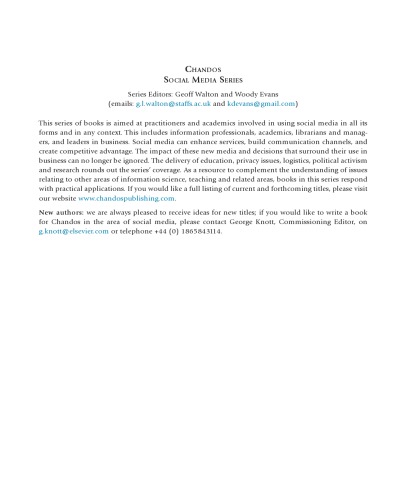

Most ebook files are in PDF format, so you can easily read them using various software such as Foxit Reader or directly on the Google Chrome browser.
Some ebook files are released by publishers in other formats such as .awz, .mobi, .epub, .fb2, etc. You may need to install specific software to read these formats on mobile/PC, such as Calibre.
Please read the tutorial at this link: https://ebookbell.com/faq
We offer FREE conversion to the popular formats you request; however, this may take some time. Therefore, right after payment, please email us, and we will try to provide the service as quickly as possible.
For some exceptional file formats or broken links (if any), please refrain from opening any disputes. Instead, email us first, and we will try to assist within a maximum of 6 hours.
EbookBell Team

4.3
18 reviewsCollective Action 2.0 explores the issues related to information and communication technologies (ICTs) in detail, providing a balanced insight into how ICTs leverage and interact with collective action, which will have an impact on the current discourse. Recent events in different authoritarian regimes, such as Iran and Egypt, have drawn global attention to a developing phenomenon in collective action: People tend to organize through different social media platforms for political protest and resistance. This phenomenon describes a change in social structure and behavior tied to ICT. Social media platforms have been used to leverage collective action, which has in some cases arguably lead, to political revolution. The phenomenon also indicates that the way information is organized affects the organization of social structures with which it interoperates. The phenomenon also has another side, which is the use of social media for activist suppression, state and corporate surveillance, commodifi cation of social processes, demobilization, or for the mobilization of collective action toward undesirable ends.